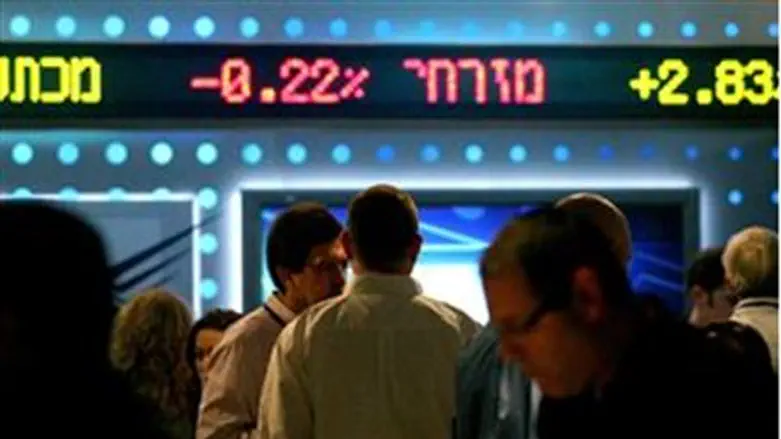
With many foreign investors worried about the potential of a real estate bubble occurring in Israel, I have been asked by many tourists about other investment alternatives available to gain exposure to the strong Israeli economy. While many of you will question my opening line about a potential real estate bubble forming in Israel, some recent data shows that it may be happening. It’s important to note that certain government officials have made it a priority to cool off the surging Israeli property market.
The Bank of Israel (BOI) continues to raise interest rates to try and slow down rising home prices. This comes on the heels of other BOI regulations regarding mortgages. Under new guidelines, buyers need make a down payment of 40% of the price, and only take a loan on 60%.
If this is the case, then how else can foreign investors gain exposure to the incredibly resilient Israeli economy?
Economy
Israel has successfully made it through the global economic crisis without so much as a scratch. While certain European countries are on the verge of bankruptcy, not only is Israel on fiscally solid ground but the Bank of Israel actually upped its economic growth forecast for 2011 to 4.5%. Starting in May 2010, Israel was re-classified as a developed country by the MSCI. For investors, this means that you get the stability of a developed country with the strong growth prospects of an emerging economy. Sounds like the best of both worlds.
I am of the belief that this change in classification will be a boon for Israeli stocks. In spite the fact that Israel used to occupy a larger percentage of the emerging market index, investments tracking the developed market are so much greater than their emerging counterparts that Israel may actually see a net inflow of investment money looking for Israeli stocks.
Not Just a Tourist Destination
With its sandy beaches and living history, Israel has always been sought after as a tourist destination. Over the last decade Israel has become a very popular destination for foreign investors as well. Global giants like General Electric, Microsoft, IBM and Johnson and Johnson are only a few of the companies that have made large investments in Israel by buying local companies. In fact, Warren Buffet, perhaps the world’s most famous and successful investor, made his largest non-U.S. investment when he purchased Iscar, an Israeli company, for $4.4 billion. Buffett has since referred to the purchase as a “dream investment.”
How to Capitalize?
For many investors, investing in Israeli stocks is an alternative way of gaining exposure to the Israeli economy. While you could open up a local Israeli brokerage account, for many foreign investors this solution is a bit complicated as it entails transferring money to Israel and converting into shekels. Foreign investors may want to look at Israeli stocks that trade in the U.S. In fact, Israel has more companies trading on major U.S. exchanges than any other country in the world. Not all Israeli companies are created equal, and unfortunately, options are limited in mutual funds and exchange traded funds that focus on Israel. As such, investors should speak to a licensed financial advisor experienced with these investments.
Risk
It’s very important to note that these types of investments carry an element of risk. As some of these companies are not very large, the smallest piece of news can send their stocks either soaring or tumbling. It’s therefore important to speak with your investment adviser to see how, if at all, investing in up-and-coming Israeli companies fits into your overall investment portfolio.
Aaron Katsman is a licensed financial professional both in the United States and Israel, and helps people who open investment accounts in the United States. Securities are offered through Portfolio Resources Group, Inc. a registered broker dealer, Member FINRA, SIPC, MSRB, NFA, SIFMA. For more information, call (02) 624-0995, visit www.aaronkatsman.com or email [email protected].